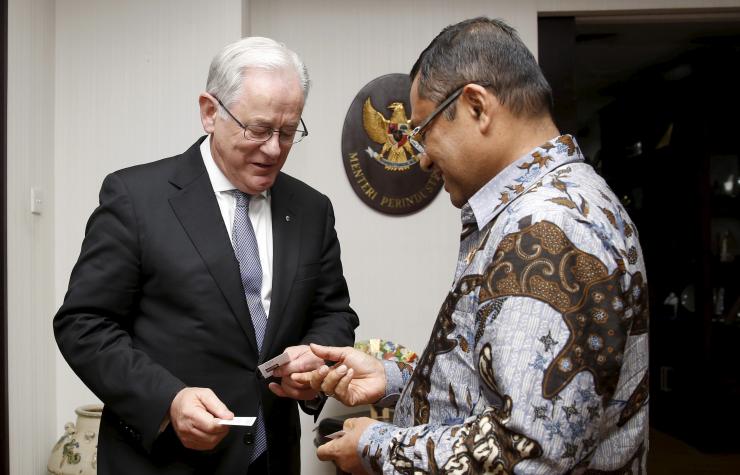Australia’s trade minister pressures Indonesia over cattle import quota
The federal government is hopeful Indonesia will return to more stable import quotas for cattle.
Mr Robb was in Jakarta on Monday for a one-day meet-and-greet with Indonesian ministers as well as business and banking leaders.
He will also meet prominent members of the Indonesian business community, including chief executives from leading banks.
ALEC CEO Alison Penfold told Beef Central the industry has not met with Indonesian officials since earlier this year, and has so far seen no change in approach from Indonesia.
A statement from Mr Robb said that Mr Turnbull felt it was important that the planned visit proceeded, given the government’s commitment to strengthening the relationship with “our close neighbour and the largest economy in Southeast Asia”.
Australia’s biggest ever business delegation to Indonesia will travel to Jakarta in November for Indonesia Australia Business Week. Robb noted that his decision to skip the swearing in of the new cabinet shows the importance of the meeting.
ALEC argues that the existing quarterly allocation system prevents advance planning and forces exporters to rush to assemble cattle at the start of each quarter, which results in supply uncertainty, unnecessary costs and, consequently, higher beef prices in Jakarta wet markets.
‘If we can stabilise and grow the cattle business that will give confidence about other unrelated areas – services in particular, ‘ Mr Robb said.
But Mr Turnbull would bring a “new dimension” to building relationships with other countries such as Indonesia because of his previous business career. The move has actually paid off in dividends for Australia as Indonesia has expressed a strong willingness to ensure a long-term focus on the import of live cattle from Australia.
Indonesia is Australia’s 12th largest trading partner, with bilateral trade valued at A$15.7 billion in 2014.
A clearer understanding between the two countries about constraints, difficulties, and challenges could be achieved if more Indonesian companies were involved in all parts of the value chain [in the live cattle market], he added.








